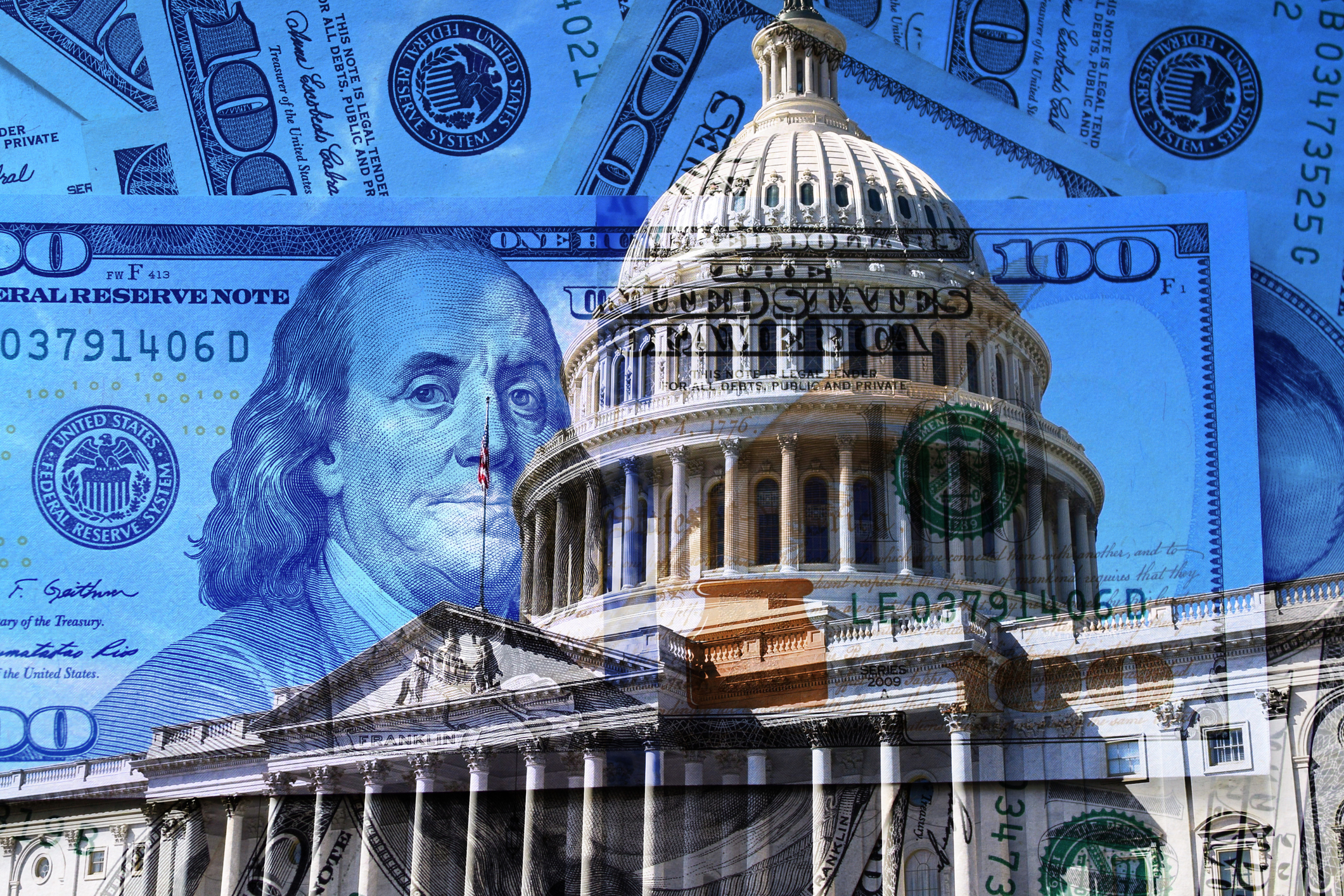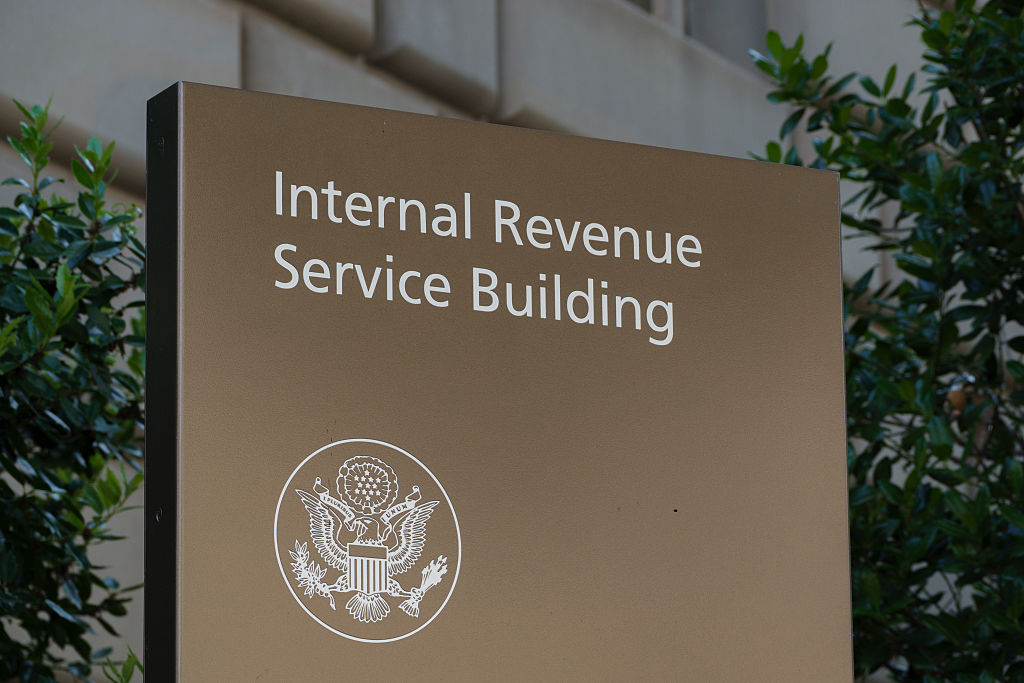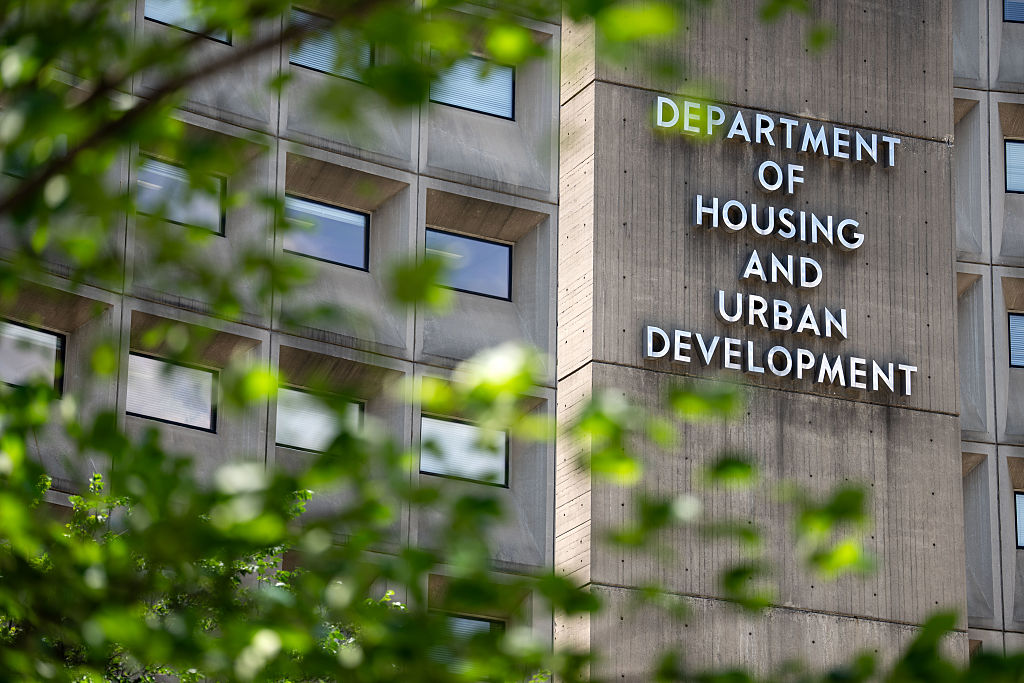What Happens to Your Money in a Government Shutdown?
From benefit checks to IRS delays, here’s what could affect your wallet if the government shuts down.


Profit and prosper with the best of Kiplinger's advice on investing, taxes, retirement, personal finance and much more. Delivered daily. Enter your email in the box and click Sign Me Up.
You are now subscribed
Your newsletter sign-up was successful
Want to add more newsletters?

Delivered daily
Kiplinger Today
Profit and prosper with the best of Kiplinger's advice on investing, taxes, retirement, personal finance and much more delivered daily. Smart money moves start here.

Sent five days a week
Kiplinger A Step Ahead
Get practical help to make better financial decisions in your everyday life, from spending to savings on top deals.

Delivered daily
Kiplinger Closing Bell
Get today's biggest financial and investing headlines delivered to your inbox every day the U.S. stock market is open.

Sent twice a week
Kiplinger Adviser Intel
Financial pros across the country share best practices and fresh tactics to preserve and grow your wealth.

Delivered weekly
Kiplinger Tax Tips
Trim your federal and state tax bills with practical tax-planning and tax-cutting strategies.

Sent twice a week
Kiplinger Retirement Tips
Your twice-a-week guide to planning and enjoying a financially secure and richly rewarding retirement

Sent bimonthly.
Kiplinger Adviser Angle
Insights for advisers, wealth managers and other financial professionals.

Sent twice a week
Kiplinger Investing Weekly
Your twice-a-week roundup of promising stocks, funds, companies and industries you should consider, ones you should avoid, and why.

Sent weekly for six weeks
Kiplinger Invest for Retirement
Your step-by-step six-part series on how to invest for retirement, from devising a successful strategy to exactly which investments to choose.
The current government shutdown has far-reaching effects — and the longer it lasts, the more disruptive it can become. Federal employees face the most immediate strain, with paychecks halted until the government reopens. But even if you don’t work for the government, the shutdown can still touch your finances in surprising ways.
The last prolonged shutdown stretched from December 2018 to January 2019, when President Trump signed a bill to temporarily reopen the government while Congress continued negotiations. That standoff left hundreds of thousands of workers without pay and created ripple effects across federal services.
No one knows how long the current shutdown will last, but preparing for possible disruptions can help you weather the uncertainty. Understanding which programs will continue, which may stall and how your money could be affected is the first step toward navigating this period with more confidence.
From just $107.88 $24.99 for Kiplinger Personal Finance
Become a smarter, better informed investor. Subscribe from just $107.88 $24.99, plus get up to 4 Special Issues

Sign up for Kiplinger’s Free Newsletters
Profit and prosper with the best of expert advice on investing, taxes, retirement, personal finance and more - straight to your e-mail.
Profit and prosper with the best of expert advice - straight to your e-mail.
Social Security and Medicare checks will keep coming
During a government shutdown, essential services and federal benefits continue to operate, and that includes Social Security and Medicare. You’ll continue to receive your standard Social Security and Medicare payments.
Though payments will continue as usual, staffing and certain services may be impacted during the shutdown. If you need to access Social Security or Medicare customer service, the response time could be slow because of reduced staffing. Plus, with fewer employees on staff through the shutdown, new applications might face longer processing times.
Federal paychecks may be delayed
Federal workers and active-duty military members often feel the brunt of a government shutdown, since their paychecks are put on hold. The Congressional Budget Office estimates that about 750,000 employees could be furloughed each day, forced to go without pay, while others performing essential duties may have to keep working without compensation, according to The Hill.
Traditionally, both furloughed employees and those who continue working receive back pay once the shutdown ends. The same applies to active-duty military members, though they too must wait until the government reopens to be paid.
By contrast, members of Congress and the president are required to continue receiving their salaries during a shutdown. Some lawmakers, including Senator Andy Kim of New Jersey, have asked for their pay to be withheld in solidarity with federal employees and servicemembers.
IRS refunds and tax services could stall

The federal shutdown means that the IRS will be operating with reduced staff. The IRS updated its shutdown contingency plans, and all staff will report to the IRS for five business days.
If the shutdown lasts longer, operations at the IRS will be slowed. Penn State University reports that taxpayer services and audits will be paused, though revenue collection will continue. According to Thomson Reuters, extended tax returns, which are due by October 15, may be impacted.
Additionally, a longer shutdown could cause delays for tax-exempt organization returns due November 17, and expatriate returns due December 15. IRS furloughs caused by the shutdown could also delay the issuance of guidance that would help individuals and businesses navigate the One Big Beautiful Bill tax provisions.
Markets may wobble, but long-term effects are limited
The economy may be uncertain, but history shows that government shutdowns cause short-term jitters, but don’t tend to result in lasting economic damage. Markets tend to do fairly well during government shutdowns, with little change to the S&P 500 during the 20 government shutdowns that have occurred since 1976.
The current shutdown is taking place at a precarious time. We’re in the midst of rising inflation paired with a weak jobs report that indicates growing unemployment, so this shutdown may feel particularly ominous. If we look at history, though, shutdowns don’t usually have a long-term negative effect on the markets.
Other programs may see disruptions

The shutdown may cause disruptions to other programs. Federal student loans and Pell Grants will still be disbursed, and students who are repaying their loans must continue to do so.
According to CNBC, 1,485 of the 1,700 U.S. Department of Education employees will be furloughed during the shutdown, so fewer applications for student loan repayment plans or earned debt forgiveness will be processed.
Similarly, the Small Business Administration will furlough 23% of its staff, putting a halt to its small business loan program. During the shutdown, the SBA won’t approve new loans or service existing loans.
Housing programs like the Department of Housing and Urban Development (HUD) will also be impacted. HUD has operated with a skeleton staff during other shutdowns, but a prolonged shutdown could impact funding for Section 8 project-based rental assistance and other programs. HUD will likely continue to pay out funds that have been previously allocated until the funding runs out.
Ultimately, housing developers with HUD loans in progress could see those loans paused until the government opens back up. Likewise, housing assistance payment contract renewals and applications for Federal Housing Administration insurance would be paused until the shutdown is over.
How to prepare your finances during a shutdown
It’s wise to make a plan for navigating the shutdown as soon as possible. If you can, set aside a cash reserve to cover unexpected expenses so you’re not forced to rely on credit cards or loans.
Expect delays when dealing with federal agencies, whether you’re filing a tax return or reaching out for customer service. If you do get through to someone, remember they’re likely managing a heavier workload, so patience goes a long way.
Finally, avoid making hasty investment decisions in response to market uncertainty. Historically, shutdowns have had little long-term impact on the markets. Instead of pulling money out, consult with a financial advisor and carefully weigh your options before making changes.
Related Content
Profit and prosper with the best of Kiplinger's advice on investing, taxes, retirement, personal finance and much more. Delivered daily. Enter your email in the box and click Sign Me Up.

Paige Cerulli is a freelance journalist and content writer with more than 15 years of experience. She specializes in personal finance, health, and commerce content. Paige majored in English and music performance at Westfield State University and has received numerous awards for her creative nonfiction. Her work has appeared in The U.S. News & World Report, USA Today, GOBankingRates, Top Ten Reviews, TIME Stamped Shopping and more. In her spare time, Paige enjoys horseback riding, photography and playing the flute. Connect with her on LinkedIn.
-
 Quiz: Do You Know How to Avoid the "Medigap Trap?"
Quiz: Do You Know How to Avoid the "Medigap Trap?"Quiz Test your basic knowledge of the "Medigap Trap" in our quick quiz.
-
 5 Top Tax-Efficient Mutual Funds for Smarter Investing
5 Top Tax-Efficient Mutual Funds for Smarter InvestingMutual funds are many things, but "tax-friendly" usually isn't one of them. These are the exceptions.
-
 AI Sparks Existential Crisis for Software Stocks
AI Sparks Existential Crisis for Software StocksThe Kiplinger Letter Fears that SaaS subscription software could be rendered obsolete by artificial intelligence make investors jittery.
-
 One of the Most Powerful Wealth-Building Moves a Woman Can Make: A Midcareer Pivot
One of the Most Powerful Wealth-Building Moves a Woman Can Make: A Midcareer PivotIf it feels like you can't sustain what you're doing for the next 20 years, it's time for an honest look at what's draining you and what energizes you.
-
 I'm a Wealth Adviser Obsessed With Mahjong: Here Are 8 Ways It Can Teach Us How to Manage Our Money
I'm a Wealth Adviser Obsessed With Mahjong: Here Are 8 Ways It Can Teach Us How to Manage Our MoneyThis increasingly popular Chinese game can teach us not only how to help manage our money but also how important it is to connect with other people.
-
 Looking for a Financial Book That Won't Put Your Young Adult to Sleep? This One Makes 'Cents'
Looking for a Financial Book That Won't Put Your Young Adult to Sleep? This One Makes 'Cents'"Wealth Your Way" by Cosmo DeStefano offers a highly accessible guide for young adults and their parents on building wealth through simple, consistent habits.
-
 My Spouse and I Are Saving Money for a Down Payment on a House. Which Savings Account is the Best Way to Reach Our Goal?
My Spouse and I Are Saving Money for a Down Payment on a House. Which Savings Account is the Best Way to Reach Our Goal?Learn how timing matters when it comes to choosing the right account.
-
 We're 78 and Want to Use Our 2026 RMD to Treat Our Kids and Grandkids to a Vacation. How Should We Approach This?
We're 78 and Want to Use Our 2026 RMD to Treat Our Kids and Grandkids to a Vacation. How Should We Approach This?An extended family vacation can be a fun and bonding experience if planned well. Here are tips from travel experts.
-
 Why Most Millionaires Don't Feel Wealthy — and What It Really Takes to Feel Financially Secure
Why Most Millionaires Don't Feel Wealthy — and What It Really Takes to Feel Financially SecureA growing share of Americans reach millionaire status yet still worry about money. Here's why wealth feels different today and how to build true financial confidence.
-
 You Could Be Overpaying for Internet. Here’s How to Choose the Right Type
You Could Be Overpaying for Internet. Here’s How to Choose the Right TypeFiber, cable, 5G wireless and satellite internet all offer different speeds, reliability and price points. Understanding the differences could help you lower your monthly bill or improve performance.
-
 My First $1 Million: Retired From Real Estate, 75, San Francisco
My First $1 Million: Retired From Real Estate, 75, San FranciscoEver wonder how someone who's made a million dollars or more did it? Kiplinger's My First $1 Million series uncovers the answers.